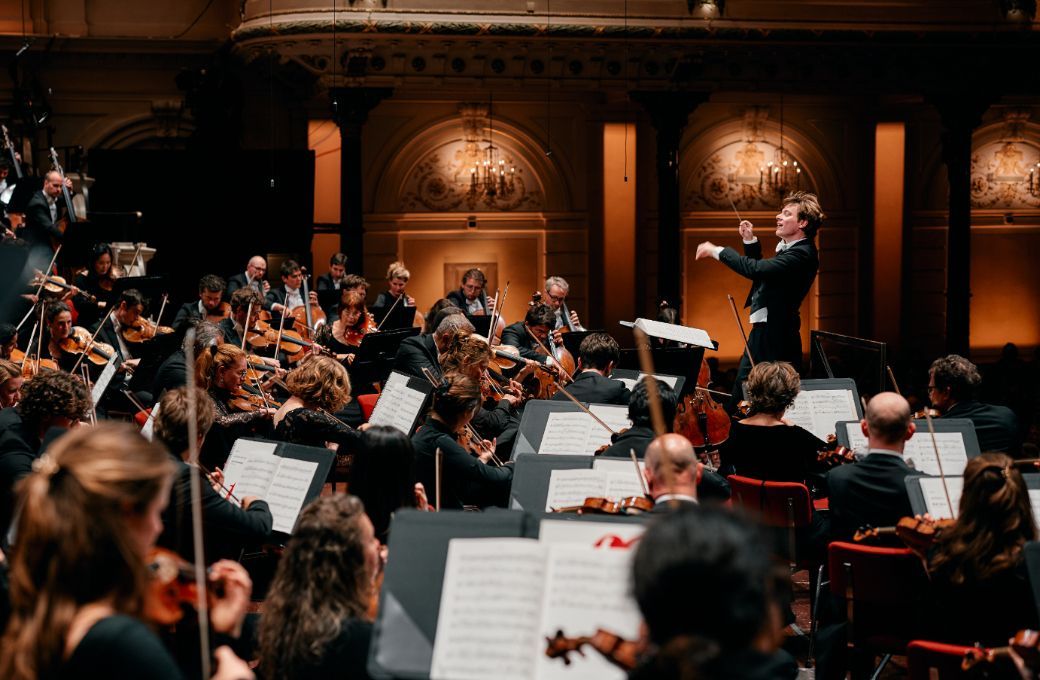The Royal Concertgebouw Orchestra is currently riding high on the crest of a wave. A successful European tour, an open-air concert in Amsterdam’s Sloterpark, a significant new corporate partnership, 14 new academists joining the ranks, and even a very special issue of children’s weekly magazine Donald Duck where you can read about “the Duckburg Kwekgebouw Orchestra and its conductor Klaus Kwäkkelä”, have given the RCO musicians much to celebrate. Would tonight’s season opening, with Chief Conductor Designate Klaus Mäkelä and French pianist Jean-Yves Thibaudet, uphold the orchestra’s new tagline: “Elke keer bijzonder” (Unique every time)?

Donning his trademark Christian Louboutin shoes, Thibaudet’s colourful performance of Saint-Saëns’ Fifth Piano Concerto was totally convincing and certainly unique. Dark, romantic yearning sat alongside delicate frailty. Dramatic piano twists and twirls were answered by equally dramatic orchestral swirls and swells. Never more so than in the exotic Andante, where Thibaudet’s beguiling flourishes took Saint-Saëns’ Egyptian-inspired palette to a new level. Quite how he evoked such bell-like luminosity for the distinctive passage in sixths is a question for another day, as was his skill in fostering delicate tenderness amidst the often thick orchestral texture. Truly, a thing of wonder. After running up and down the Concertgebouw stairs, two at a time, Thibaudet delighted with Chopin’s Nocturne no. 1 in B flat minor.
If the concerto had channelled all things Romantic, the Dutch premiere of Anna Thorvaldsdottir’s Anchora depicted something very different. Her stark vision of Icelandic desolation unnerved and disturbed in equal measure and is undoubtedly in a class of its own. Creating music ideally suited to cinematic soundtracks, Thorvaldsdottir challenges musicians to re-examine the very concept of sound production. Asking four horns to blow wind effects down their instruments was perhaps her most indulgent, yet highly effective example. The culminating twenty minutes of horror however, left me pining for more.
In a similar vein, an evocative and lingering solo from RCO bassoonist Gustavo Núñez quickly set the tone for this very special reading of Stravinsky’s The Rite of Spring. Cleverly, Mäkelä seemed to almost soften the narrative, introducing a human element to this carnal tale, tailoring the score for a modern ear. Soloist and conductor alike found freedom within Stravinsky’s very rigid rhythmic confines. When earlier, his beat had been direct and precise, it now found an attractive fluidity, within the irregular syncopated polyrhythms, at times, even hinting at the swing and sway of early jazz.
Amid the desolation of unrelenting terror, of earthy primal utterings and muted trumpets’ haunting pleas for mercy, Mäkelä’s humanity brought the music alive. Rarely does silence bring forth such relief. Momentum perhaps momentarily waned in the final approach, but tight ensemble and music-making of the highest order made this performance definitely one to remember.


